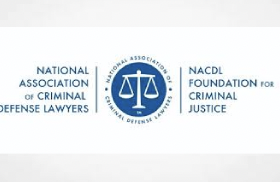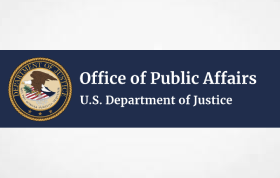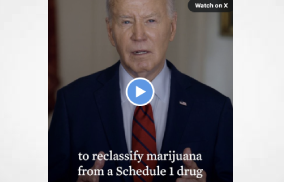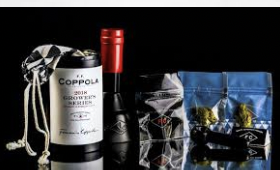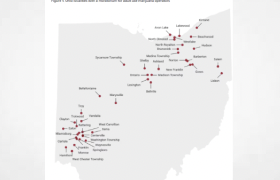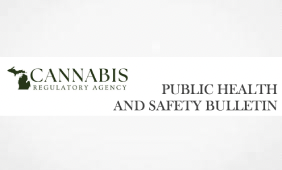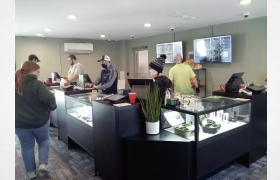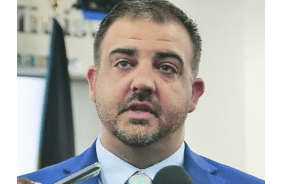Remember they are already at odds with the Uk govt over the proposed bill..
The Nassau Guardian reports
Agriculture Minister Clay Sweeting said yesterday he remains hopeful that proposed legislation to establish a cannabis industry in The Bahamas will be brought before the end of the fiscal year.
Sweeting had previously expressed hopes that a bill would be introduced in Parliament before the end of 2022.
He said yesterday the Office of the Attorney General has not yet concluded the bill.
Sweeting said, “I’ve always been supportive of moving ahead with that legislation.
“But I would say that once it’s completed then we can see in regards to ensuring consultation, once it’s completed and Cabinet has agreed the full construct of what we’re trying to do.
“I’ve always supported medicinal marijuana and ensuring that Bahamians have a role in how we construct that industry.”
The Progressive Liberal Party (PLP) has pledged to “develop a comprehensive regulatory framework for growing, harvesting and exporting cannabis so that the industry creates opportunities for many, not just a few”.
In January 2020, Progressive Liberal Party (PLP) Leader Philip Davis called then-PM Minnis’ promised cannabis reform “public relations gimmickry” and later questioned why the Minnis administration was taking so long on marijuana legislation.
In late June, Attorney General Ryan Pinder said in the Senate the government intends to advance its Cannabis Bill to “develop a comprehensive regulatory framework for growing, harvesting and exporting cannabis” within the first six months of the new fiscal year.
That would mean before the end of 2022.
“This legislation is internationally benchmarked against the countries around the world in the industry,” said Pinder during the budget debate in the Senate.
“The framework will be for the regulation of the medical cannabis industry from the farm to the border, and will also provide a separate regulatory framework for industrial hemp, for wellness products and for industrial uses such as clothing, rope and building materials made from hemp.
“We will also provide a framework for the decriminalization of possession of small amounts of cannabis products.”
The Bahamas National Commission on Marijuana appointed in October 2018 and co-chaired by former Deputy Commissioner of Police Quinn McCartney and Bishop Simeon Hall presented its report to then-Prime Minister Dr. Hubert Minnis on August 31, 2021, two weeks before the general election in which voters removed Minnis and the Free National Movement from office.
In the final report, the commission made a series of recommendations.
A key recommendation is that the necessary amendments be made to the Dangerous Drugs Act (DDA) that will facilitate the legalization and regulation of cannabis for medical purposes and provide for the proper regulation as it relates to cultivation, processing and distribution of cannabis and cannabis-based products for people prescribed to utilize cannabis for medical purposes.
The commission recommended that the prescription of cannabis be treated the same as any other psychoactive drug.
It also recommended that people who are prescribed cannabis for medical use be allowed to grow sufficient plants (at various stages of growth) to ensure that they have access to the amount of product for their condition, and where they are not capable to grow the plant themselves, to allow a licensed relative or caregiver, over the age of 21 years, to grow the quantity of plants they need.
The commission recommended that provisions be made for individuals who are prescribed cannabis for medical use, and who cannot cultivate or who do not have a person to cultivate for them, to be able to have affordable access to a supply of cannabis from regulated dispensaries or pharmacies.
Additionally, it recommended that the necessary amendments be made to the act to maintain that possession of cannabis is illegal for recreational use, but to decriminalize the possession of small amounts, and that the amount of cannabis that a person over the age of 21 can possess for personal use, and not receive a criminal record, be one ounce.
The commission suggested that the amount set for decriminalization be reviewed every two years after comprehensive analysis/impact studies are conducted.
It said the relevant laws should be amended at the earliest opportunity for the immediate expungement of the criminal records of all individuals convicted of possession of cannabis.
The final report said, “Commissioners are aware that decriminalization is in effect a form of legalization of the recreational use of cannabis, as it is essentially authorizing persons to possess up to an ounce of cannabis. It is recognized that this poses a paradox, as decriminalization on its own does not provide a legitimate and legal means for persons to obtain their supply of cannabis.
“It is appreciated that decriminalization may further facilitate the already existing illegal black market for persons to obtain cannabis, which has its inherent law enforcement challenges.”
Asked earlier this year whether the Davis administration will make use of the report of the marijuana commission which was established under the Minnis administration, Sweeting, the agriculture minister, said this is a matter the attorney general will need to address.
